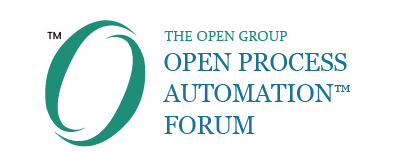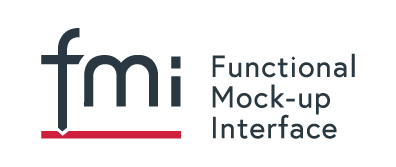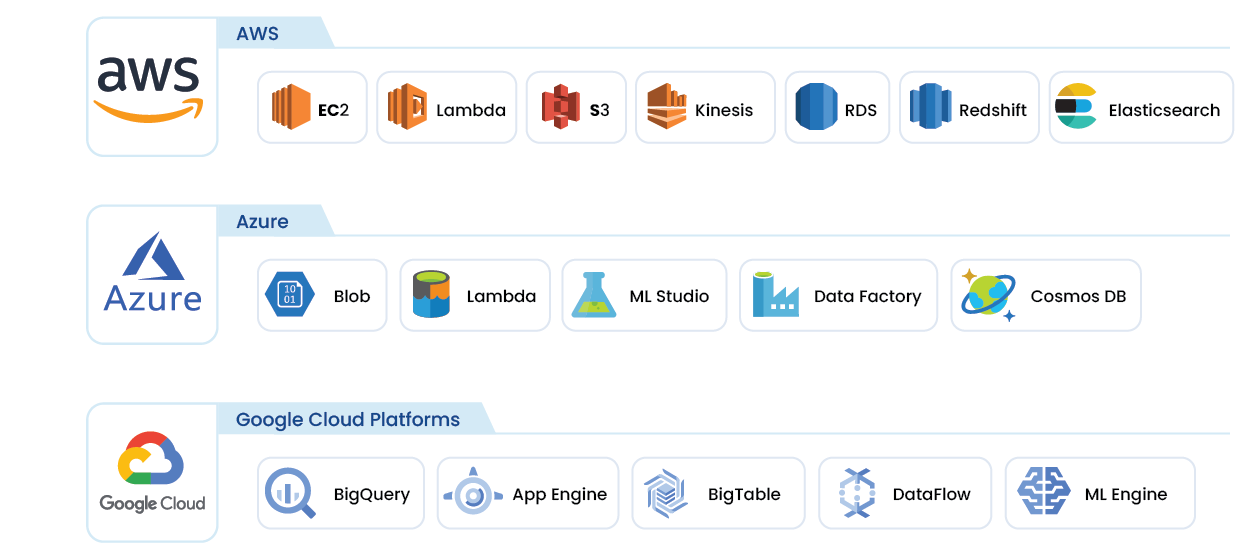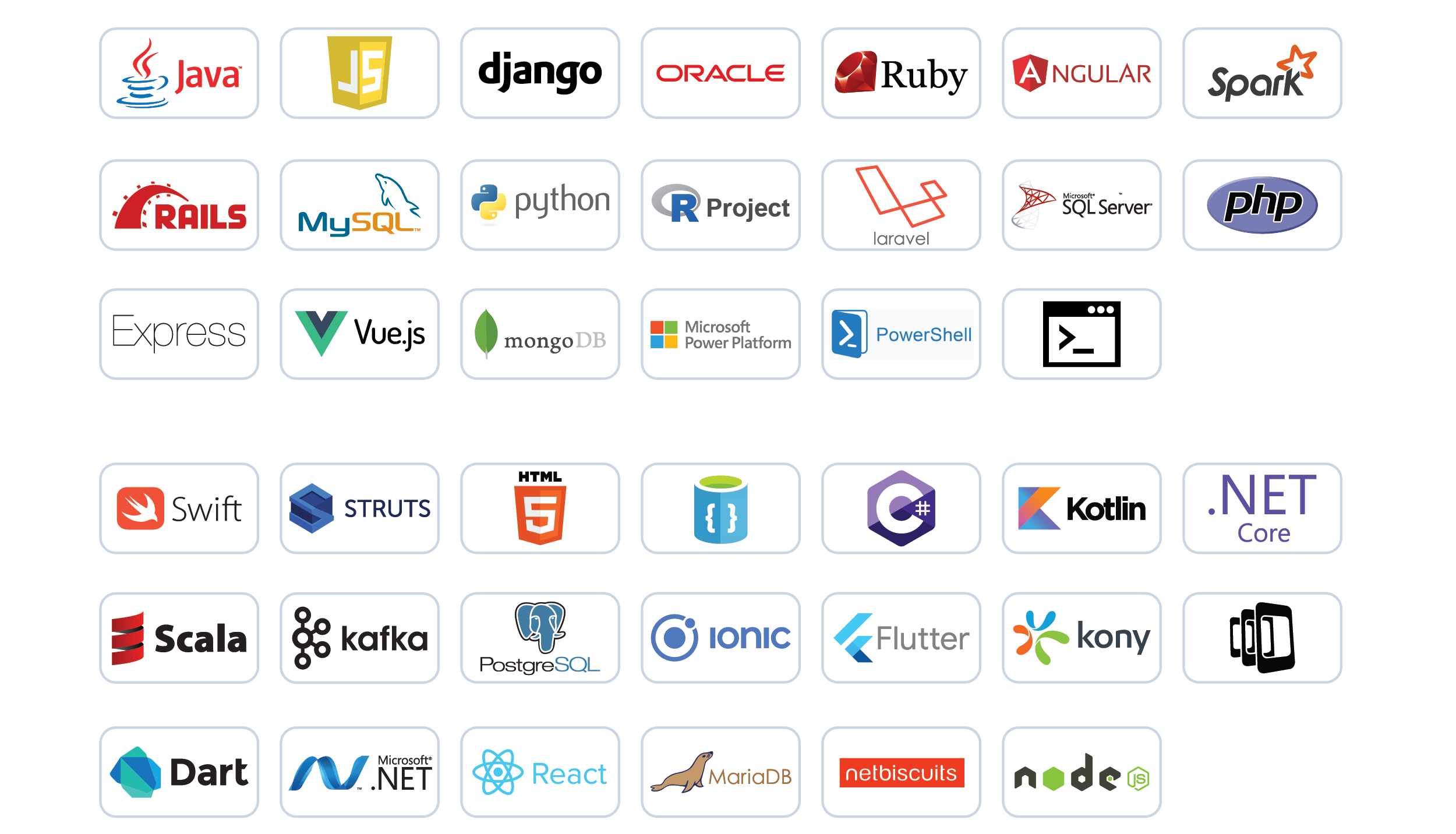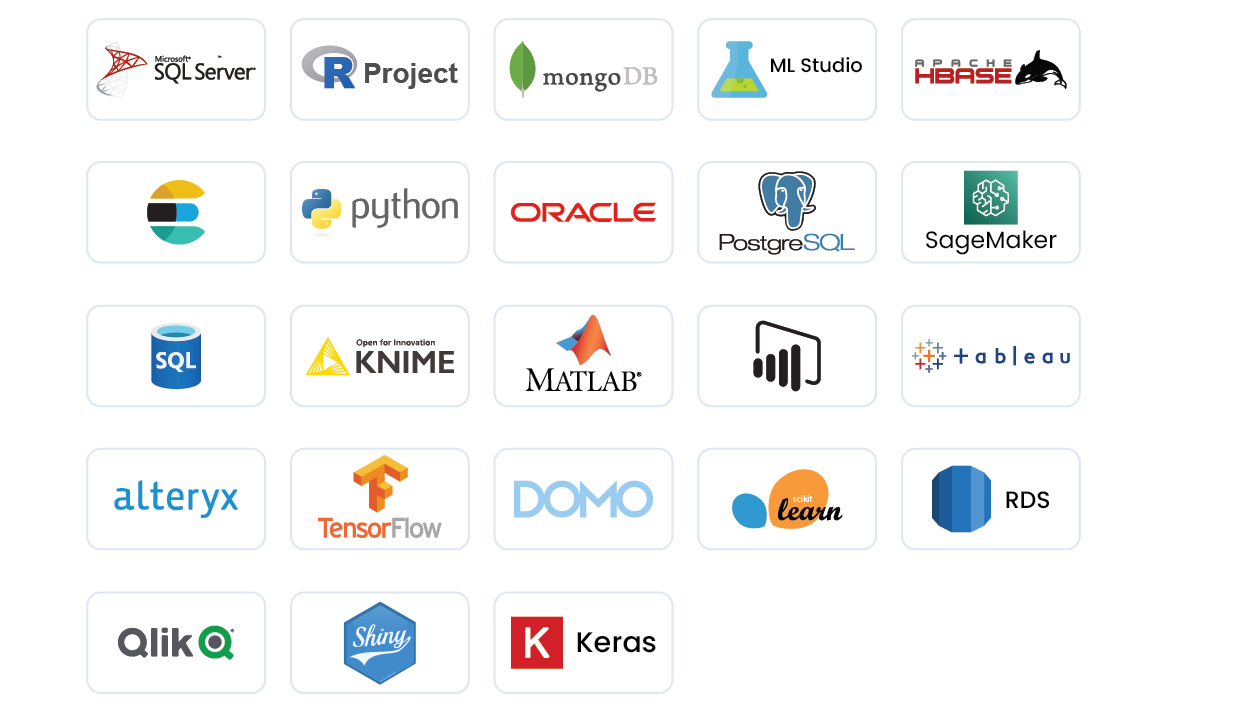Utthunga’s Software Engineering Services
Architecting the Digital Future. Reimagining Possibilities.
Envision a landscape where:
- Data isn’t just collected but harnessed for informed decision-making.
- Production lines are synchronized with IoT connectivity, orchestrating a symphony of efficiency.
- Legacy systems are harmonized with Industry 4.0 technologies, propelling your operations toward agility and innovation.
- AI-driven insights illuminate new avenues, catalyzing innovation.
Well, this is what we assist you in creating using our end-to-end software engineering services. From conceptualization to realization, our software engineering services encapsulate every facet of Industry 5.0 transformation.
Whether you are looking to optimize processes through AI-driven automation, harness the power of the cloud for seamless operations, or unravel hidden insights through data analytics, we have you covered. Step into the future of manufacturing with our innovative digital engineering services.
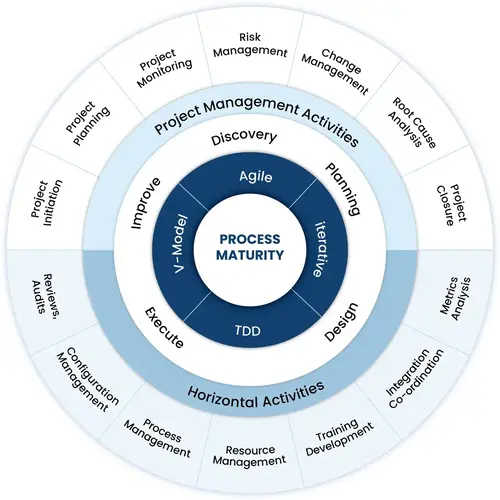
Our Signature Software Engineering Services
Enterprise & Cloud Engineering Services
- Consulting & Advisory
- Application Engineering
- Data Ops
- Analytics & Insights
- Application Security
- Cloud-Native Applications
- Mobile Applications
OT Software Engineering Services
- Configuration, Calibration & Diagnostic Apps
- Edge Computing Apps
- Asset Management Apps
- Asset Modelling & Simulation
- Condition Monitoring & Predictive Maintenance Apps
- Remote Management Apps
- Industrial Communication Protocols Integration
Testing & Automation Services
- End-to-End Application Testing
- Application Test Automation
- Integration Testing
- Performance Testing
- Functional Testing
- API Testing
- Security Testing
Our Specialized Expertise in Software Engineering
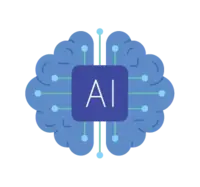
AI/ML & Industrial Data Ops

Industrial Cloud Adoption

OT Applications Suite

Edge & Connectivity Applications

Cybersecurity Engineering

DevSecOps & QAOps
Sensor to Cloud Expertise
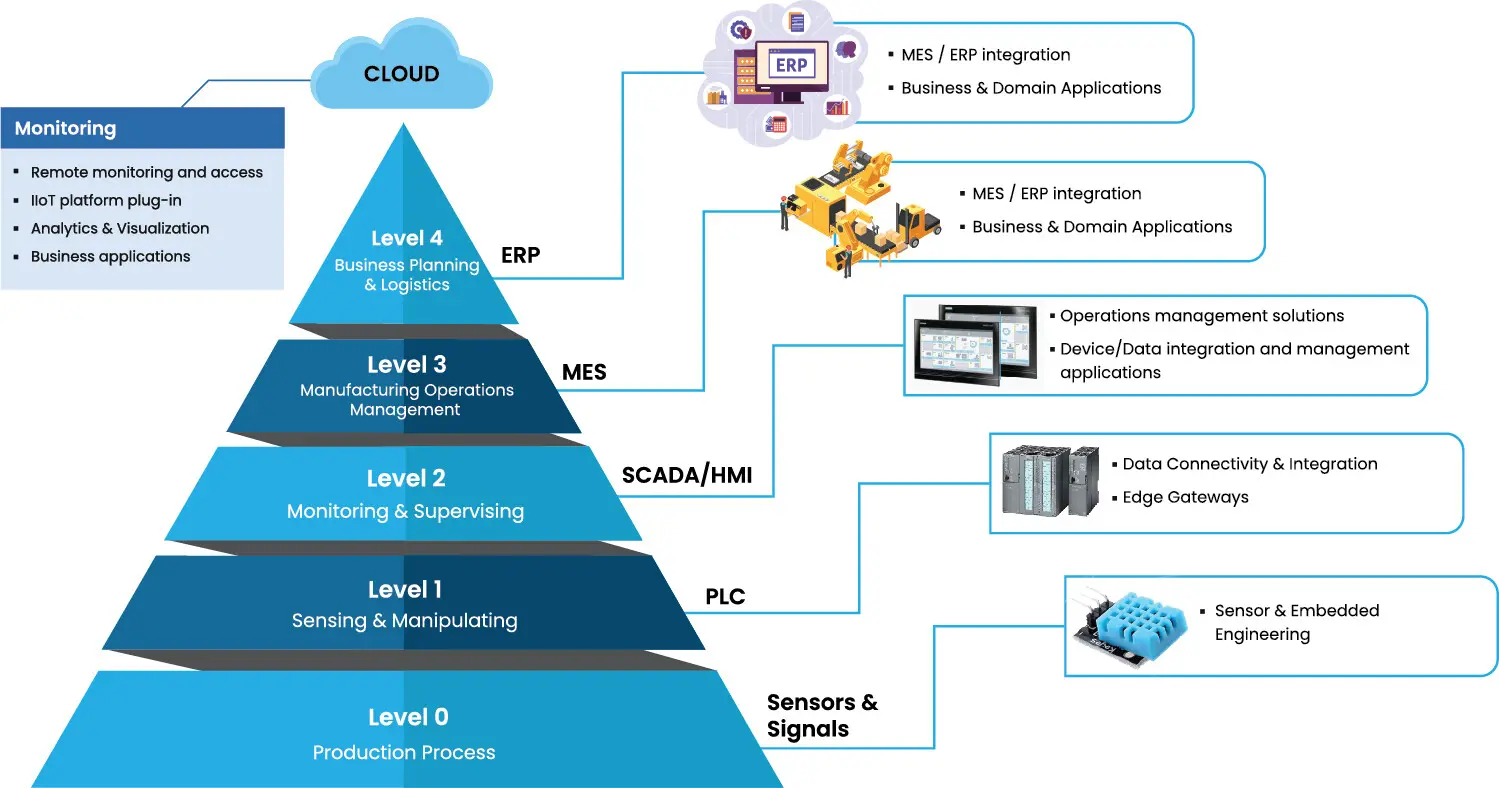
Crafting Transformative Applications with Our Software Engineering Services
Cloud Level Offerings
- KPI Dashboards
- Smart Product or Solution Discovery and Advisory Applications
- Managed Services Applications
- Decision Support Systems
- Knowledge Management Systems
- Analytical Work Benches for Insights and Advisory


Business Planning and Logistics Level Offerings
- Digital Logbooks
- Data Management SDK
- Asset Discovery & Assessment
- Asset and Health Management Frameworks (CBM, DMAIC, FMEA)
- Failure Analysis and Advisor
- Remote Support Apps for Inspection, Training
- Remote Guided Operations and Guided Assembly
Manufacturing Operations Management Level Offerings
- Asset Management Applications
- Engineering IDE – DCS, PLC
- Intelligent SCADA
- Operator Console/HMI Applications
- Test, Diagnostics, and Monitoring


Monitoring and Supervising Level Offerings
- Edge, Fog Gateway Platform
- Analytics (Signatures, Patterns, Classification)
- Cognitive Analytics Image & Video (2D &3D) Analytics
- Edge Device Management
- Asset Discovery & Assessment
Sensing and Manipulating Level Offerings
- Configuration Apps
- Diagnostic Apps
- Condition Monitoring & Anomaly Detection
- Predictive Maintenance Applications

Building Your Vision with a Streamlined Software Engineering Process
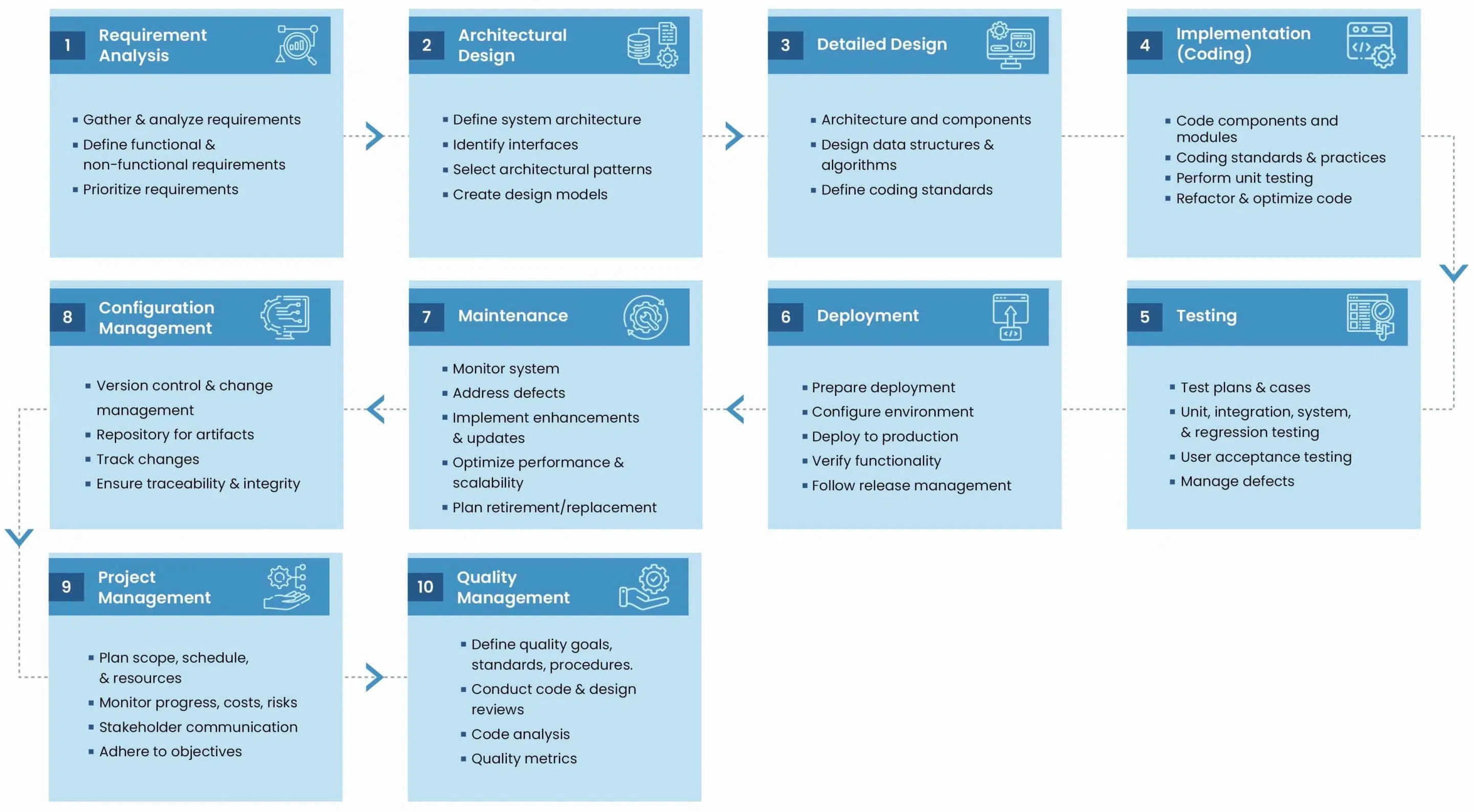
Utthunga’s Expert Software Engineering Team
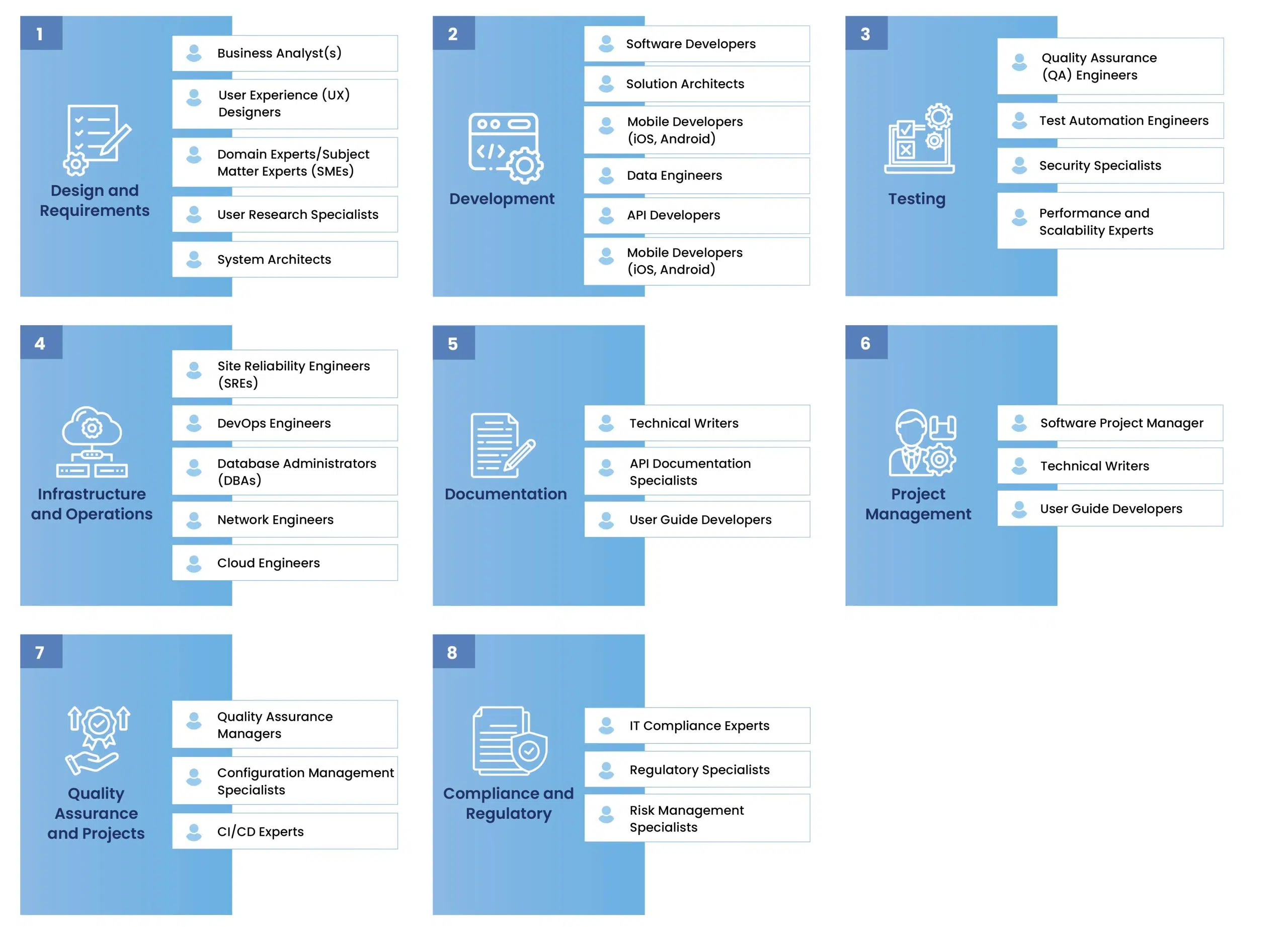
Our Future-Ready Software Engineering Accelerators and Platforms

Smart Enterprise Suite
- IIOT Platform
- Edge Management
Empowering smart manufacturing with IIoT platforms, edge management, advanced analytics, and AI/ML for optimized production.
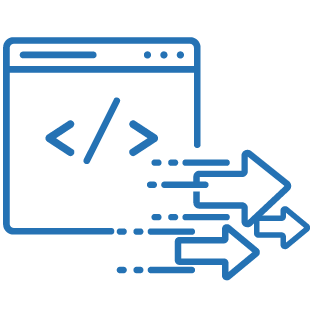
Rapid Development Programming Interface Framework
This low-code framework, enhanced with our customizations, accelerates application delivery cycles.

Digital Twin Solutions
Our digital twin solutions virtually replicate your products, processes and systems for simulation-driven design and optimization.

GenAI Solutions for Industrial OEMs & Manufacturing
We tailor generative AI capabilities to streamline engineering, automate processes and augment services.

Cross-Platform Test Automation Framework
This framework, coupled with our expertise, ensures quality through comprehensive automated testing across platforms.
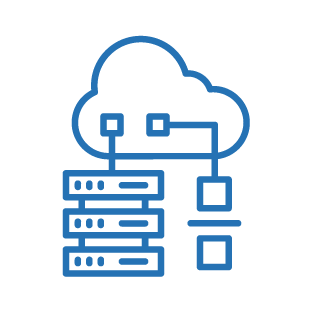
Infrastructure-as-a-Code
We provision and manage cloud infrastructure as code for consistent, repeatable, and scalable deployments aligned with DevOps practices.

Industry DataOps Framework
Our DataOps solutions operationalize data pipelines from source to analytics for driving data-driven decision intelligence.
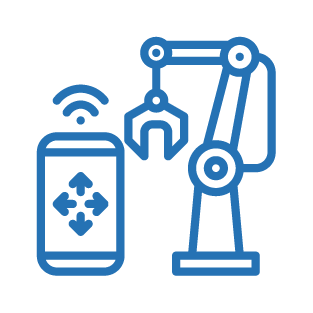
uOPC Suite - OT-IT /Cloud Connector
We bridge OT and IT/cloud realms by utilizing this unified connectivity suite for seamless data exchange.
Transformative Software Engineering Journeys
Cloud Based Vessel Fuel Monitoring (VFM) for a Marine Logistics Company
We developed a cloud-based vessel fuel monitoring solution for a marine logistics company, enabling real-time insights, optimized operations, and increased data security and efficiency. This resulted in:
- 15% reduced fuel consumption with real-time insights
- 95% improved data accuracy for precise decisions
- 25% better operational efficiency via real-time data
- 98% increased data security with tamper-proof measures
- 30% fewer on-site visits enabled by remote monitoring
- 40% reduced device downtime with one-click updates


Cloud Based Predictive Maintenance Solution for a Heavy Equipment OEM
We implemented a cloud-based predictive maintenance solution for a heavy equipment OEM, leveraging IoT and machine learning to predict and prevent failures, reducing downtime and maintenance costs. The impact?
- 40% less unplanned downtime by predicting failures
- 30% lower maintenance costs with proactive approach
- 25% improved customer satisfaction
- 20% increased resource efficiency and utilization
- 15% extended equipment lifespan, maximizing ROI
Our Industry Ecosystem
Technologies at the Core of Our Software Engineering Services
Why Choose Utthunga as Your Software Engineering Partner?

1. Transformative Expertise
We bring together technology expertise, design proficiency, and industry know-how — a potent mix to catalyze your digital evolution.

2. Holistic Solutions
From cloud to IoT to AI and everything in between, our diverse expertise offers comprehensive digital engineering solutions tailored to your unique needs.

3. Futuristic Strategies
We go beyond current trends and focus on building future-proof strategies that keep you ahead in the digital curve for years to come.

4. Fortified Security
Big Digital Dreams? Let’s Engineer Them to Life
FAQs
1. What is software engineering services?
Software engineering services drive industry 4.0 transformation through a comprehensive range of solutions. This includes:
a. Enterprise & Cloud Engineering
- Consulting & Advisory
- Application Engineering
- Data Ops
- Analytics & Insights
- Application Security
- Cloud-Native Applications
- Mobile Applications
b. OT Software Engineering
- Configuration, Calibration & Diagnostic Apps
- Edge Computing Apps
- Asset Management Apps
- Asset Modelling & Simulation
- Condition Monitoring & Predictive Maintenance Apps
- Remote Management Apps
- Industrial Communication Protocols Integration
c. Testing & Automation
- End-to-End Application Testing
- Application Test Automation
- Integration Testing
- Performance Testing
- Functional Testing
- API Testing
- Security Testing
2. What are the benefits of outsourcing software engineering services?
- Outsourcing software engineering services can offer significant benefits to your business. This includes:
- Cost Savings: Outsourcing software engineering services can significantly reduce labor and operational costs. By partnering with a software engineering service provider, you can access a global talent pool without the overhead costs of hiring and maintaining in-house teams.
- Access to Specialized Expertise: Software engineering companies possess the necessary skills, expertise, and experience to handle various aspects of software engineering and engineering seamlessly. This expertise can lead to higher-quality results.
- Faster Time-to-Market: Leveraging the established workflows and resources, software engineering companies can accelerate project timelines. This can be especially beneficial when there are tight deadlines to meet.
- Scalability: Outsourced software engineering service providers can seamlessly scale their software engineering efforts up or down as needed. This enables you to easily adjust the level of service depending on the project demands.
- Focus on Core Competencies: You can concentrate on your core business activities and strategic objectives by outsourcing software engineering services. This allows you to remain competitive and innovative.
- Access to Advanced Technology: Top software engineering companies typically invest heavily in the latest tools and technologies, ensuring that projects benefit from cutting-edge solutions without the client investing significantly in software and hardware.
- Global Perspective: Typically, the best software engineering companies provide access to a diverse pool of talent with different perspectives and experiences, which can lead to creative and innovative solutions.
- 24/7 Operations: Top software engineering companies operate on a 24/7 basis, allowing work to continue around the clock and potentially accelerating project timelines.
- Flexibility: Premier software engineering companies offer flexibility in terms of engagement models. Whether it’s a one-time project, ongoing support, or a dedicated team, clients can choose the arrangement that suits their needs best.
However, it’s important to note that outsourcing software engineering services requires careful selection of the right software engineering partner. After all, outsourcing software engineering services is not without challenges. Hence, careful consideration and due diligence are essential when deciding on the right outsourced software engineering service provider.
3. What are the traits/qualities to look for in a Software engineering partner?
- Here are some key traits/qualities to look for in a software engineering partner:
- Expertise in software engineering: You should select a software engineering company with a solid foundation in software engineering and a proven track record of successfully applying technologies and methods to engineering projects across various industries.
- Industry-Specific Knowledge: Opt for a software engineering services company with experience in your industry or a related field. Understanding your industry’s unique challenges and regulations is essential for effective collaboration.
- Innovation-Driven: Partner with a software engineering service provider committed to innovation, continuously exploring and adopting new tools and technologies to enhance project outcomes.
- Skilled and Diverse Team: Assess the skills and backgrounds of the team members of the software engineering. A diverse team with expertise in various aspects of software engineering, including cloud, software development, AI, ML, simulations, and data analytics, can tackle complex projects more effectively.
- Customization: A reliable software engineering partner can tailor their software engineering services to align with your specific project goals and requirements. They prioritize your needs and be adaptable to changes in scope or objectives.
- Quality Assurance: Ensure that the software engineering services company has robust quality control processes to maintain high project deliverables standards. This is especially important for projects with strict regulatory or compliance requirements.
- Collaborative Approach: A robust software engineering partner collaborates closely with your team and fosters an environment where ideas are shared and solutions are developed together.
- Data Security: Data security is paramount, especially for projects involving sensitive information. Ensure that the software engineering company has stringent data security measures in place to protect your data and intellectual property.
- Scalability: Opt for a software engineering company that can scale the software engineering services to meet the evolving needs of your project, whether it’s a small-scale initiative or a large, complex undertaking.
- Global Reach: It is always beneficial to partner with a software engineering company with a global presence or the ability to collaborate with software engineering experts worldwide.
- Sustainability Focus: If sustainability is a concern for your project, look for a software engineering company that integrates eco-friendly practices into its software engineering processes.
- Continuous Improvement: Ensure that the software engineering company you select is committed to ongoing improvement in both their processes and their team’s skills.
4. How to select the best software engineering company in the US?
Here is the step-by-step guide to help you select the best software engineering services company in the US:
a. Define Your Project Requirements
- Outline your project’s goals, scope, and budget.
- Determine the software engineering services you need, such as software product development, IoT integration, simulation, data analytics, etc.
b. Research and Shortlist Companies
- Research online, ask for referrals from peers in the industry, and look at industry-specific directories.
- Make a list of probable software engineering companies in the US that fit your needs based on their expertise, reputation, and portfolio.
c. Evaluate Expertise and Experience
- Examine the website and portfolio of each of the shortlisted software engineering companies in the US to determine their experience with projects similar to yours.
- You can tell if a software engineering services company is experienced by examining its case studies, client testimonials, and industry awards.
d. Check Industry Alignment
- Make sure the company is experienced in your field or one that is similar, as this can be very helpful in understanding your specific requirements.
e. Assess Technological Proficiency
- Evaluate whether the shortlisted software engineering service provider is proficient in software technologies such as AI, ML, cloud, IoT, etc.
- Inquire about the platforms and software they use.
f. Consider Scalability and Capacity
- Assess whether the US based software engineering company can handle the size and complexity of your project.
- Inquire about their workload and availability.
g. Request References and Case Studies
- Ask past customers for testimonials and insight into the performance and reliability of the company.
- Evaluate the case studies provided by competitor companies.
h. Evaluate Quality Assurance and Security Measures
- Inquire about the software engineering company’s testing procedures and quality assurance processes. Also, ask how the software engineering company ensures the reliability and security of their products.
- Discuss about the data security protocol and how they comply with applicable regulations.
i. Meet with Potential Partners
- Schedule meetings or consultations with the shortlisted software engineering companies in the US to discuss your project in detail.
- Assess their communication skills, responsiveness, and willingness to work together.
j. Review Contracts and Pricing
- Obtain detailed proposals and contracts from each shortlisted software engineering company in the US, outlining project scope, milestones, timelines, and costs.
- Make sure that the pricing is transparent and in line with your budget.
k. Assess Cultural Fit
- Assess the software engineering company’s work culture and values to ensure compatibility with your organization’s culture.
l. Visit Facilities (Optional)
- If feasible, visit the software engineering service provider’s facilities to assess their infrastructure, work environment, and team capabilities.
m. Review Legal and Compliance Aspects
- Assure the software engineering company adheres to all applicable laws and regulations, including intellectual property and data protection.
n. Make an Informed Decision
- Compare the shortlisted software engineering companies that are shortlisted based on the above factors.
- Select the software engineering company that aligns best with your project requirements, budget, and objectives.
o. Negotiate and Finalize Contracts
-
Once you have selected the best software engineering company, negotiate the contract terms and finalize your agreement. Ensure all the details are thoroughly documented.
p. Maintain Clear Communication
- Maintain open and transparent communication with your chosen software engineering partner throughout the project to ensure successful collaboration and delivery.
By following the above-mentioned evaluation process, you can increase the likelihood of selecting the best software engineering company in the United States for your specific needs.
5. How can software engineering company help you with Industry 4.0 transformation?
- A software engineering company can play a pivotal role in facilitating Industry 4.0 transformation for your organization. Here’s how they can help:
- Digital Strategy Development: A software engineering service provider can help you define a tailored and clear software engineering strategy that aligns with your business objectives. They can evaluate your current capabilities, identify areas for improvement, and outline a roadmap to adopt Industry 4.0 technologies.
- Technology Assessment: A software engineering company can assess your current systems & technologies and determine which components are compatible with Industry 4.0 and which may need to be upgraded or replaced.
- Customized Solutions: A software engineering company can design and develop tailored Industry 4.0 solutions to meet your needs. This includes developing IoT-enabled devices, implementing AI and machine learning algorithms, and creating data analytics platforms.
- IoT Integration: A software engineering consulting service provider can help you design, develop, integrate, and manage IoT-enabled devices and equipment that support real-time data collection and analysis. This can lead to better monitoring, predictive maintenance, and enhanced operational efficiency.
- Data Analytics: Software engineering companies can create data analytics solutions that process large volumes of data generated by your operations. This data can be used for predictive maintenance, quality control, demand forecasting, and more.
- Automation and Robotics: Software engineering service providers can design, develop, and implement robotics and automated systems to improve production processes, reduce costs, and improve quality.
- Cloud Computing: Software engineering companies can help you leverage cloud-based platforms to store, manage, and analyze data securely, enabling remote access and scalability.
- Cybersecurity: A software engineering services company can assist you in implementing robust cybersecurity measures to protect your digital assets, data, and systems from cyber threats.
- Simulation and Digital Twins: Software engineering companies can create digital twins of your physical assets and processes, allowing you to simulate and optimize operations before making physical changes, thus reducing risks and costs.
- Continuous Improvement: Software engineering partners can monitor the performance of implemented solutions, collect feedback, and make continuous improvements to ensure that your Industry 4.0 initiatives remain effective and aligned with your evolving business needs.
- Compliance and Regulation: Software engineering companies can assist you in navigating regulatory requirements and standards relevant to Industry 4.0, ensuring that your transformation efforts remain compliant.
- Scalability: As your business grows, a software engineering company can help you scale your Industry 4.0 solutions to accommodate increased demand and complexity.
6. What are the biggest challenges of software engineering in manufacturing?
- The biggest challenges of software engineering in manufacturing include the following:
- Legacy Systems Integration: Most manufacturing companies still rely on legacy systems that may need help to integrate with modern digital technologies. Integrating these systems with new software solutions can be complex and expensive.
- Data Management: The vast amount of data generated by sensors, machines, and processes can overwhelm organizations. Managing, storing, and analyzing this data efficiently is a significant challenge.
- Security Concerns: As manufacturing becomes more connected, cybersecurity threats become more significant. Protecting sensitive data and critical infrastructure from cyberattacks is a top concern.
- Skill Gap: There is a shortage of skilled professionals with expertise in digital technologies like IoT, AI, ML, simulation, and data analytics. Hence, finding, training, and retaining relevant talent can be challenging.
- Change Management: Software engineering often requires a cultural shift within an organization. Employees must adapt to new processes, technologies, and working methods, which can meet resistance.
- Costs and ROI: Implementing digital technologies can be expensive. Manufacturers must carefully assess the costs and expected return on investment (ROI) to justify these expenditures.
- Interoperability: Ensuring that different digital systems and devices can communicate and work together seamlessly is essential. Incompatibility issues can hinder the effectiveness of digital transformation efforts.
- Regulatory Compliance: Manufacturing companies must navigate complex regulations and standards, especially in highly regulated industries like pharmaceuticals, which can impact digital transformation initiatives.
- Data Privacy: Collecting and using customer and employee data in software engineering can raise privacy concerns. Manufacturers must adhere to data protection regulations like GDPR and CCPA.
- Scalability: Ensuring that software solutions are scalable to accommodate growth and future demand changes is a challenge.
7. What are some common use cases for software engineering services across different industries?
Software engineering services have become indispensable across various industries, driving innovation and operational excellence. As businesses increasingly rely on technology to stay competitive, partnering with a reputable software engineering company has become crucial. Let’s explore how software engineering service providers are transforming key industries:
i. Oil & Gas: Software engineering companies are revolutionizing this sector with advanced solutions. They develop sophisticated reservoir modeling software, real-time pipeline monitoring systems, and AI-driven production optimization tools. These software engineering services enhance exploration efficiency, significantly improve safety protocols, and optimize resource extraction, leading to substantial cost savings and improved environmental compliance.
ii. Discrete Manufacturing: In this fast-paced industry, software engineering service providers are at the forefront of innovation. They create cutting-edge manufacturing execution systems (MES), AI-powered quality control software, and blockchain-enabled supply chain management tools. They can not only streamline production processes but also enable predictive maintenance, reducing downtime and improving overall operational efficiency.
iii. Pharmaceutical: The pharmaceutical industry heavily relies on software engineering services for breakthrough innovations. Software engineering companies develop advanced laboratory information management systems (LIMS), AI-driven drug discovery platforms, and comprehensive regulatory compliance software. These tools accelerate research, ensure adherence to strict industry standards, and facilitate faster time-to-market for new drugs.
iv. Metal and Minerals: In this resource-intensive sector, software engineering service providers offer game-changing solutions. They provide AI-enhanced mine planning software, IoT-enabled process control systems, and predictive asset management tools. These software engineering services optimize extraction processes, improve resource management, and enhance worker safety in challenging environments.
v. Power: The energy sector is undergoing a digital transformation, powered by software engineering services. Software engineering companies develop smart grid management systems, AI-driven energy trading platforms, and IoT-based predictive maintenance software for power plants. These solutions enhance energy distribution efficiency, improve plant reliability, and facilitate the integration of renewable energy sources.
vi. Cement: Software engineering service providers are helping the cement industry become more efficient and environmentally friendly. They create process optimization software using machine learning, IoT-enabled quality control systems, and real-time emissions monitoring tools. These software engineering services improve production efficiency, ensure product consistency, and enhance environmental compliance.
vii. Wastewater: In this critical sector, software engineering companies are making a significant impact. They develop AI-powered treatment plant control systems, IoT-based water quality monitoring software, and advanced network management tools. These software engineering services enhance treatment efficiency, ensure regulatory compliance, and help conserve water resources.
viii. Chemical: The chemical industry benefits greatly from innovative software engineering services. Software engineering service providers create sophisticated process simulation software, AI-enhanced safety management systems, and blockchain-enabled inventory control tools. These solutions optimize production processes, enhance safety measures, and improve supply chain transparency.
ix. Fertilizer: In this sector, software engineering companies focus on developing AI-driven nutrient management software, IoT-enabled production planning tools, and advanced quality control systems. These software engineering solutions improve product consistency, optimize resource usage, and help reduce environmental impact.
x. Food and Beverage: Software engineering service providers are transforming this industry with cutting-edge solutions. They provide AI-powered inventory management systems, blockchain-enabled food safety compliance software, and machine learning-based production scheduling tools. These solutions help enhance product quality, ensure safety standards, and optimize supply chain operations.
Across all these industries, software engineering services are driving digital transformation efforts. By partnering with a leading software engineering company, businesses can leverage advanced technologies such as AI, IoT, and data analytics to gain a competitive edge. Software engineering service providers offer expertise in developing custom solutions that address industry-specific challenges, enabling businesses to stay ahead in rapidly evolving markets.
8. What is software product engineering services?
Software product engineering services represent a comprehensive approach to developing, designing, and maintaining software products throughout their entire lifecycle. These services, offered by specialized software engineering companies, encompass a wide range of activities aimed at creating high-quality, scalable, and market-ready software solutions.
At its core, software product engineering services involve the application of engineering principles to software development. This means that software product engineering service providers not only focus on coding but also on the systematic, disciplined, and quantifiable approach to software creation and management. These services typically include:
- Product Conceptualization and Planning
- Architecture Design
- Development and Coding
- Quality Assurance and Testing
- Deployment and Launch
- Maintenance and Support
- Product Enhancement
What sets software product engineering services apart is their holistic approach. Unlike project-based software development, product engineering takes a long-term view.
One of the key advantages of engaging software product engineering services is access to specialized expertise. Software product engineering companies employ professionals with deep knowledge in various technologies, methodologies, and industry-specific requirements. This expertise allows them to tackle complex challenges and deliver innovative solutions that drive business growth.
Another crucial aspect of software product engineering services is the focus on user experience (UX) and user interface (UI) design. Software product engineering companies understand that a product’s success heavily depends on its usability and appeal to end-users. Therefore, they integrate UX/UI best practices throughout the development process to create intuitive and engaging software products.
Furthermore, software product engineering companies often provide valuable insights into market trends and competitive landscapes. This strategic input helps businesses make informed decisions about product features, pricing strategies, and target markets.
In conclusion, software product engineering services offer a holistic approach to creating successful software products. By partnering with a reputable software product engineering company, businesses can leverage expert knowledge, cutting-edge technologies, and proven methodologies to develop innovative, high-quality software solutions. Whether it’s a startup looking to launch its first product or an established enterprise aiming to modernize its software offerings, software product engineering services play a crucial role in driving technological innovation and business success in today’s digital landscape.
9. What is SaaS (Software as a Service), and how does it support digital transformation in businesses?
Software as a Service (SaaS) is a cloud-based software delivery model that has revolutionized the way businesses access and utilize software applications. In this model, software engineering companies develop and maintain applications that are hosted on remote servers and made available to users over the internet. This approach has become a cornerstone of digital transformation strategies for businesses across various industries.
Key Features of SaaS
i. Accessibility and Flexibility: Users can access SaaS applications from any device with an internet connection, promoting flexibility and remote work capabilities. This aspect of SaaS has become particularly crucial in recent years, as businesses adapt to increasingly distributed work environments. Software engineering services focused on SaaS development enable companies to create solutions that support this new paradigm of work.
ii. Scalability: As businesses grow or their needs change, SaaS applications can easily scale to accommodate these shifts. Software engineering companies specializing in SaaS development design their solutions with scalability in mind, allowing businesses to add or remove users, features, or storage capacity as needed.
iii. Cost-Effectiveness: Traditional software models often require substantial upfront investments in licenses, hardware, and IT personnel. In contrast, SaaS typically operates on a subscription-based model, converting these capital expenses into more manageable operational costs.
iv. Rapid Implementation and Updates: Unlike traditional software that may require lengthy installation processes and disruptive updates, SaaS applications can be deployed quickly and updated seamlessly. Software engineering companies continuously improve and update their SaaS offerings, ensuring that businesses always have access to the latest features and security enhancements.
How SaaS Supports Digital Transformation
i. Enhanced Collaboration: Many SaaS applications are designed with built-in collaboration tools, allowing teams to work together effectively regardless of their physical location. Software engineering services focused on SaaS often emphasize these collaborative features, recognizing their importance in modern business environments.
ii. Data Analytics and Insights: Many SaaS applications come with built-in analytics capabilities, allowing businesses to gather and analyze data more effectively. Software engineering service providers often incorporate advanced analytics features into their SaaS offerings, enabling businesses to make data-driven decisions.
iii. Enhanced Security and Compliance: Reputable software engineering companies that develop SaaS solutions invest heavily in security measures, often providing a level of protection that exceeds what many businesses could implement on their own.
iv. Integration Capabilities: Modern SaaS applications are often designed with APIs and integration tools that allow them to connect seamlessly with other software systems. Software engineering services focused on SaaS development prioritize these integration capabilities, enabling businesses to create cohesive ecosystems of interconnected applications.
In conclusion, SaaS is a powerful enabler of digital transformation in businesses. By leveraging the expertise of software engineering service providers and embracing SaaS solutions, organizations can achieve greater flexibility, scalability, and efficiency in their operations. The SaaS model aligns closely with the goals of digital transformation, providing businesses with the tools they need to innovate, adapt, and thrive in an increasingly digital world.
10. How can a software engineering company support end-to-end digital transformation?
A software engineering company plays a pivotal role in supporting end-to-end digital transformation, offering comprehensive software engineering services that enable organizations to revolutionize their operations, enhance customer experiences, and stay competitive in the digital age. Software engineering service providers act as strategic partners, guiding businesses through every stage of their digital transformation journey.
Here’s how a software engineering company can support end-to-end digital transformation:
i. Strategic Planning and Consultation: The best software engineering service providers begin by conducting thorough assessments of an organization’s current technological landscape, business processes, and goals. They work closely with stakeholders to develop a tailored digital transformation strategy that aligns with the company’s vision. This collaborative approach ensures that the digital transformation initiatives are both ambitious and achievable.
ii. Legacy System Modernization: Many organizations grappling with digital transformation face the challenge of outdated legacy systems. A top software engineering company can provide expertise in modernizing these systems, either through refactoring, re-architecting, or replacing them with more agile, cloud-based solutions. This modernization is crucial for creating a foundation that supports digital innovation.
iii. Cloud Migration and Adoption: Software engineering services often include comprehensive cloud migration strategies. Software engineering service providers can help organizations transition their infrastructure, applications, and data to the cloud, enabling greater scalability, flexibility, and cost-efficiency. This move to the cloud is often a cornerstone of digital transformation efforts.
iv. Development of Custom Software Solutions: To address unique business challenges and opportunities, a software engineering company can develop custom software solutions tailored to specific organizational needs. These bespoke applications can range from internal tools that streamline operations to customer-facing platforms that enhance engagement and service delivery.
v. Implementation of Emerging Technologies: Digital transformation often involves leveraging cutting-edge technologies. Software engineering service providers can integrate technologies such as artificial intelligence, machine learning, Internet of Things (IoT), blockchain, and big data analytics into existing systems or new solutions. This integration helps organizations unlock new capabilities and gain competitive advantages.
vi. User Experience (UX) and User Interface (UI) Design: A critical aspect of digital transformation is enhancing user experiences. The best software engineering companies offer UX/UI design services to create intuitive, engaging, and efficient interfaces for both internal systems and customer-facing applications. This focus on user-centric design is essential for driving adoption and satisfaction.
vii. Data Analytics and Business Intelligence: Software engineering services often include the development of robust data analytics and business intelligence solutions. These tools enable organizations to harness the power of their data, gaining valuable insights that drive informed decision-making and strategy formulation.
viii. Cybersecurity Enhancement: As organizations undergo digital transformation, ensuring robust cybersecurity becomes paramount. Software engineering service providers offer comprehensive security solutions, including threat detection systems, encryption protocols, and secure software development practices to protect sensitive data and systems.
ix. Agile and DevOps Implementation: To support the rapid pace of digital transformation, top software engineering companies help organizations adopt agile methodologies and DevOps practices. These approaches enable faster development cycles, improved collaboration, and more frequent releases, which are essential in a digitally transformed environment.
x. Continuous Integration and Continuous Deployment (CI/CD): Software engineering service providers implement CI/CD pipelines, automating the software delivery process. This automation is crucial for organizations undergoing digital transformation, as it allows for rapid, reliable, and consistent software updates and deployments.
xi. Training and Knowledge Transfer: A key aspect of successful digital transformation is ensuring that an organization’s workforce is equipped to leverage new technologies and processes. Software engineering companies often provide training programs and knowledge transfer sessions to upskill employees and foster a culture of digital innovation.
xii. Ongoing Support and Maintenance: Digital transformation is an ongoing process, and software engineering service providers offer continuous support and maintenance services. This ensures that transformed systems remain optimized, secure, and aligned with evolving business needs.
xiii. Performance Monitoring and Optimization: Software engineering services include the implementation of monitoring tools and processes to track the performance of digital systems. This ongoing assessment allows for continuous optimization, ensuring that the transformed digital ecosystem delivers maximum value.
xiv. Scalability and Future-Proofing: As part of the digital transformation process, the best software engineering companies design solutions with scalability in mind. This forward-thinking approach ensures that as an organization grows and evolves, its digital infrastructure can adapt and expand accordingly.
By partnering with a reputable software engineering company, organizations can navigate the complexities of digital transformation with confidence. The comprehensive software engineering services provided support not just the technical aspects of transformation, but also the cultural and operational shifts required for success in the digital era. From strategic planning to implementation and ongoing support, software engineering service providers are instrumental in driving successful end-to-end digital transformation initiatives that position organizations for long-term success in an increasingly digital world.
11. What are the steps involved in software engineering services?
Utthunga’s software engineering services typically involve several key steps throughout the lifecycle of a software project.
Here’s a general outline of these steps:
i. Requirement Analysis:
- Gather & analyze requirements
- Define functional & non-functional requirements
- Prioritize requirements
ii. Architectural Design:
- Define system architecture
- Identify interfaces
- Select architectural patterns
- Create design models
iii. Detailed Design:
- Architecture and components
- Design data structures & algorithms
- Define coding standards
iv. Implementation (Coding):
- Code components and modules
- Coding standards & practices
- Perform unit testing
- Refactor & optimize code
v. Testing:
- Test plans & cases
- Unit, integration, system, & regression testing
- User acceptance testing
- Manage defects
vi. Deployment:
- Prepare deployment
- Configure environment
- Deploy to production
- Verify functionality
- Follow release management
vii. Maintenance:
- Monitor system
- Address defects
- Implement enhancements & updates
- Optimize performance & scalability
- Plan retirement/replacement
viii. Configuration Management:
- Version control & change management
- Repository for artifacts
- Track changes
- Ensure traceability & integrity
ix. Project Management:
- Plan scope, schedule, & resources
- Monitor progress, costs, risks
- Stakeholder communication
- Adhere to objectives
x. Quality Management:
- Define quality goals, standards, procedures
- Conduct code & design reviews
- Code analysis
- Quality metrics
12. What expertise does Utthunga's Software Engineering services team offer?
Utthunga, as a leading software engineering company, demonstrates its commitment to excellence through a comprehensive suite of
software engineering services. Our team of industry-leading experts covers various aspects of the software development lifecycle,
including:
i. Design and Requirements:
- Business Analyst(s)
- User Experience (UX) Designers
- Domain Experts/Subject Matter Experts (SMEs)
- User Research Specialists
- System Architects
ii. Development:
- Software Developers
- Solution Architects
- Mobile Developers (iOS, Android)
- Data Engineers
- API Developers
- Mobile Developers (iOS, Android)
iii. Testing:
- Quality Assurance (QA) Engineers
- Test Automation Engineers
- Security Specialists
- Performance and Scalability Experts
iv. Infrastructure and Operations:
- Site Reliability Engineers (SRES)
- DevOps Engineers
- Database Administrators (DBAS)
- Network Engineers
- Cloud Engineers
v. Documentation:
- Technical Writers
- API Documentation Specialists
- User Guide Developers
vi. Project Management:
- Software Project Manager
- Technical Writers
- User Guide Developers
vii. Quality Assurance and Projects:
- Quality Assurance Managers
- Configuration Management Specialists
- CI/CD Experts
viii. Compliance and Regulatory:
- IT Compliance Experts
- Regulatory Specialists
- Risk Management Specialists
By offering this wide range of expertise, Utthunga’s software engineering services team stands ready to turn your concepts into successful, market-ready products,
adhering to the highest standards of quality and efficiency in software engineering.







